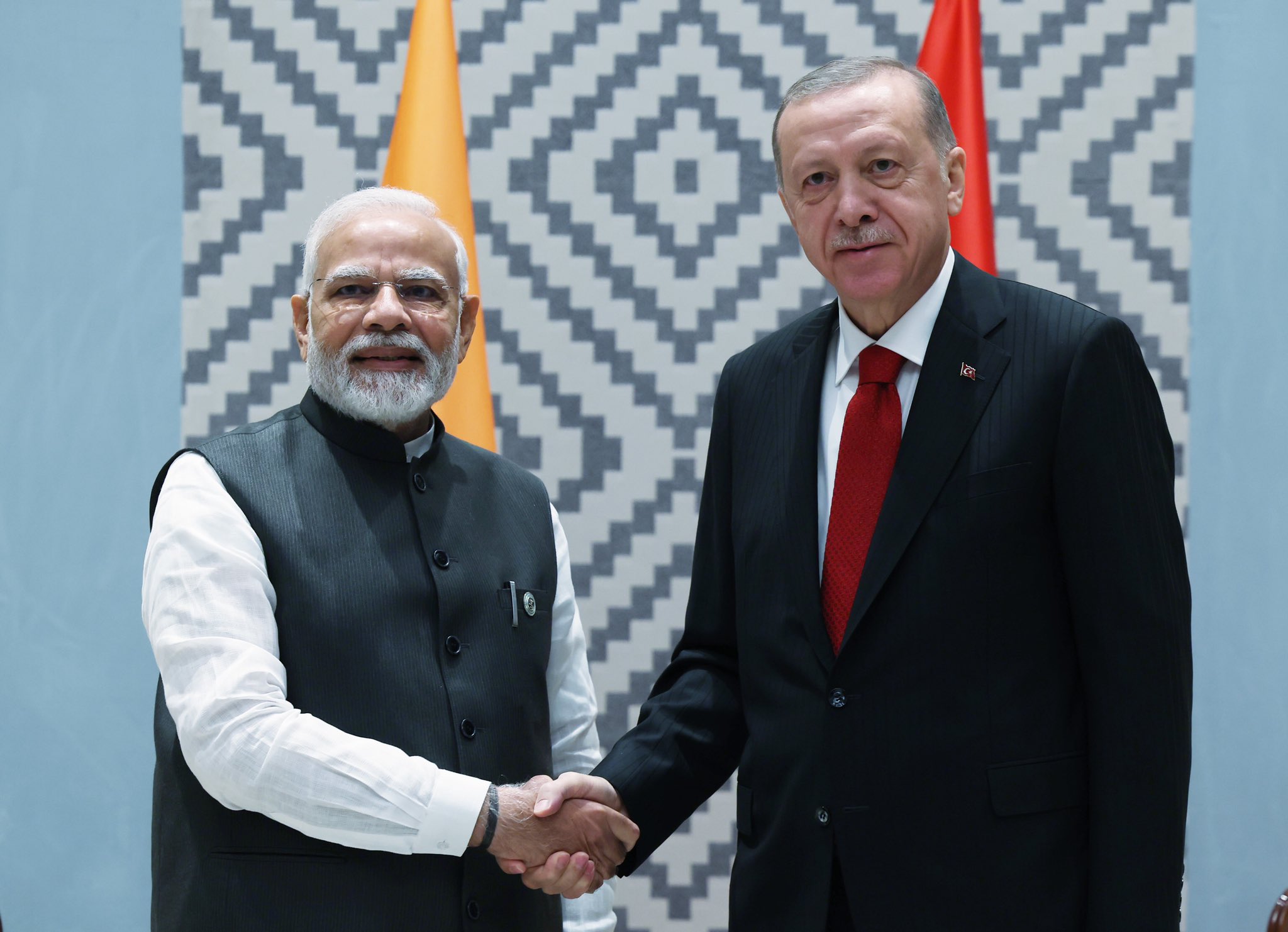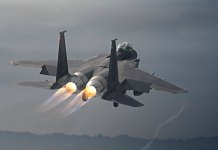Turkish naval shipbuilding company TAIS and its Anadolu Shipyard eventually might not be involved in building the five Fleet Support Ships (FSS) for the Indian Navy, as the project would be executed entirely indigenously.
Underlying geopolitical issues and friction between New Delhi and Ankara possibly have influenced the decision. The Turkish firm had won the project’s contract as a design collaborator.
Officials told EurAsian Times that the shipbuilding will be undertaken in-house, implying the Turkish firm is out of the project. There has, however, been no official word in this regard.
The Ministry of Defense (MoD) had cleared the TAIS in March 2020, after security and diplomatic issues over Turkey’s defense ties with Pakistan and supporting the latter’s position on Kashmir had cast a shadow on the contract its company had won.
TAIS had emerged as the lowest bidder for collaborating with the Vizag-based Hindustan Shipyard Limited (HSL) in designing the ships and supplying essential shipbuilding equipment for the five 45,000-tonne FSS in 2019.
Still, the contract signing was put on hold in October that year. With the MoD signing the Rs. 19,000 crore (US$2.3B) contract with HSL last week, with no mention of TAIS, it is assumed that the decision to continue with the Turkish firm has been reversed.
“These ships would enhance the strategic reach and mobility of the Fleet. The induction of these ships will significantly enhance the blue water capability of the Indian Navy. The ships can also be deployed for evacuation of people and human assistance and disaster relief (HADR) operations,” the MoD said.
Turkish Firm Cleared in March 2020
The contract was signed by HSL in February 2020 after the Ministry of Defence (MoD) accorded the clearances, according to unnamed sources in media reports. They added that even the Ministry of External Affairs (MEA) was consulted before the green signal.
HSL sought to resolve the matter immediately and extensively corresponded with the defense ministry between mid-2019 and early 2020. “MoD has directed HSL to put the project on temporary hold because of recent diplomatic developments with Turkey.
HSL inputs regarding the legal and financial implications of canceling the bid of Anadolu shipyard have been submitted to the MoD,” the ministry told the parliamentary standing committee on defense.
The issue led to the MoD’s vigilance department being subsequently roped in to review the order and approve the deal’s execution, a March 2020 report in the Economic Times quoted officials.
“Similarly, inputs were received from MEA on diplomatic implications, after which it was decided to proceed with the Turkish collaborator. The contract was signed last month (February 2020) after the defense ministry removed its temporary hold order,” the ET report added.
The Indian FSV project received an initial clearance in 2016 after the Indian Navy raised the requirement for ships that could carry fuel and other supplies for warships. However, Indian officials perceive a diplomatic and security challenge from Ankara, given its close defense ties with the Pakistan Navy. Turkish shipyards constitute a significant warship builder for the Pakistani fleet.
Turkish-Pakistani Defense Ties
On August 2 this year, the two countries launched the fourth in the series of MILGEM-class corvettes in Karachi, which Ankara built in collaboration with Karachi Shipyard and Engineering Works (KS&EW).
This triggered concerns on how access to the sensitive HSL by its engineers and workers might hold the risk of industrial and technological espionage of the Indian Navy’s naval project.
HSL is located near the Ship Building Centre, where India’s nuclear-armed submarines are built. The Eastern Naval Command (ENC) is headquartered at Vishakhapatnam.
Turkey has also designed a fleet support vessel for Pakistan, supports its submarine fleet, and has signed a deal to sell 30 T-129 attack helicopters developed in collaboration with Italian company Finmeccanica (since renamed Leonardo).
In April, the Pakistan Air Force (PAF) took delivery of the first batch of the Akinci unmanned combat aerial vehicles (UCAV) from Turkish drone and defense major Baykar.

Kashmir Issue
While the above are security and defense concerns over being militarily close to Pakistan, diplomatic issues over Pakistan and Turkey being on the same page over Kashmir is another. In February 2020, Erdogan raised the Kashmir issue again and attempted to draw similarities to the Palestine conflict.
Since then, the Turkish President has visited Pakistan, where he repeatedly raised the Kashmir issue and said that Turkey was on Pakistan’s side over the conflict and would support it on the issue of being censored by the Financial Task Force. Following Erdogan’s visit in February, India expressed strong reservations in a statement on March 3 and issued a demarche to the Turkish envoy.
However, an official from the HSL told EurAsian Times that it did not mention the Turkish firm, as the project will be undertaken “indigenously,” implying the contract with TAIS is likely to be scrapped.
A Naval News report also said the MoD had delayed signing the contract with TAIS owing to an assertion that the FSS “will be indigenously designed and constructed by HSL, Visakhapatnam.”
The March 2020 Economic Times report said that the MoD sought “inputs regarding the legal and financial implications of canceling the bid of Anadolu shipyard,” which indicated that the government was already considering shelving the contract, even after security clearances were received.
This means the government perceived geopolitical concerns to be more pressing than the rift with Turkey on contract cancellation.
- The author can be reached at satamp@gmail.com
- Follow EurAsian Times on Google News




